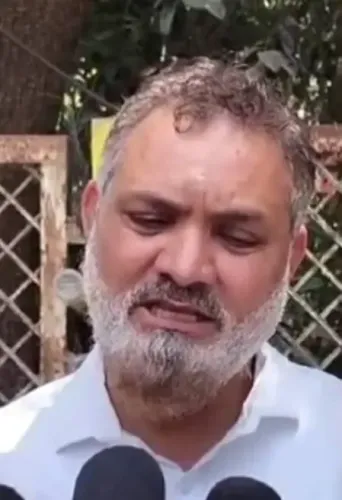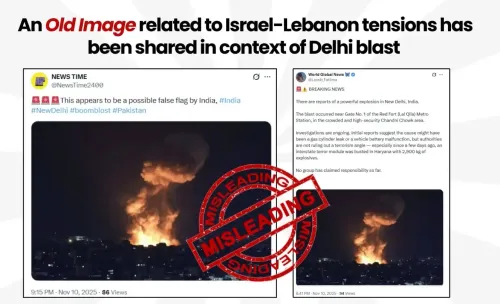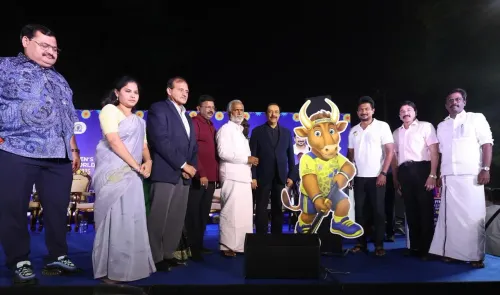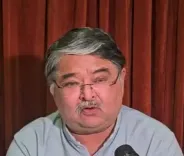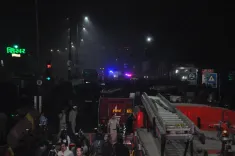Why Did Pakistani Journalists Boycott the Finance Minister's Post-Budget Interaction?
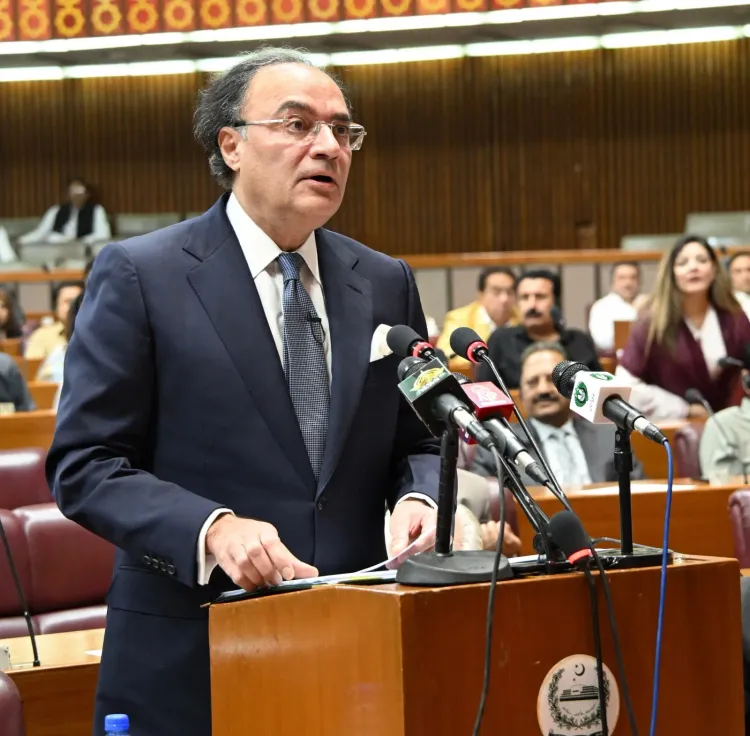
Synopsis
Key Takeaways
- Journalists boycotted the budget press conference.
- Accusations of breaking a 20-year tradition.
- PTI party labeled the budget as illegitimate.
- Concerns over government transparency and accountability.
- Criticism of elitist budgeting practices.
Islamabad, June 11 (NationPress) On Wednesday, journalists in Pakistan staged a boycott of the post-budget press conference led by Finance Minister Muhammad Aurangzeb in Islamabad. They accused the government of violating a two-decade tradition by failing to conduct a technical briefing on the federal budget for 2025-2026.
Reports from local media indicated that reporters walked out as soon as Aurangzeb commenced the press briefing. Prominent business journalists joined in chanting slogans, demanding transparency and adherence to established practices. Their departure not only disrupted the briefing but also conveyed a strong sentiment of discontent regarding the current budget.
The Federal Minister for Information, Attaullah Tarar, attempted to mitigate the situation, acknowledging the lack of a technical session as an oversight and offering an apology on behalf of the government.
In another development, the opposition party, Pakistan Tehreek-e-Insaf (PTI), categorically rejected the budget, branding it as "illegitimate" and "anti-people". They criticized it as an "IMF-dictated budget" devoid of a public mandate.
"This is a fake government that lacks the legitimacy to present a budget," stated PTI's parliamentary committee, pledging to oppose the budget.
Opposition leader in the Senate, Shibli Faraz, highlighted that the federal government had exceeded all previous records of elitist budgeting.
According to Pakistan's Express Tribune, Faraz noted the Afghan currency had appreciated against the Pakistani rupee, indicating the government's failure.
He further criticized the government's management of inflation and taxation, asserting that the salaried class is under immense economic pressure, stating, "as much blood as can be drawn from them is being drawn."
In his critique of the budget, he questioned how the nation could develop while relying on "IMF crutches".

